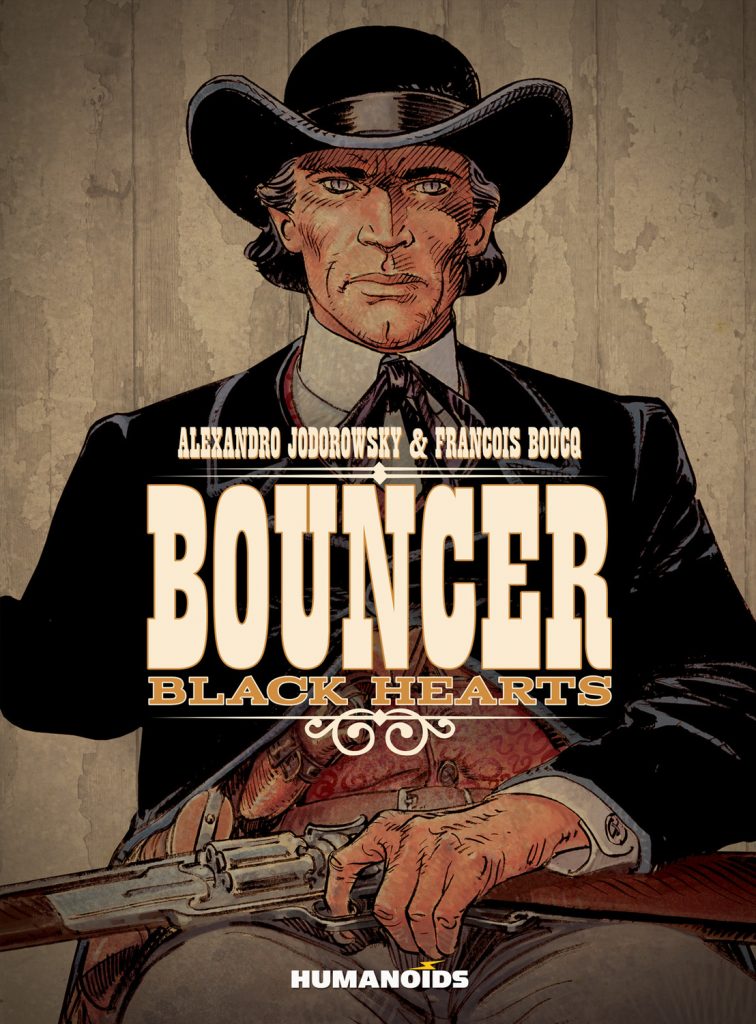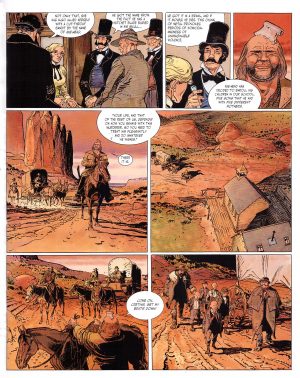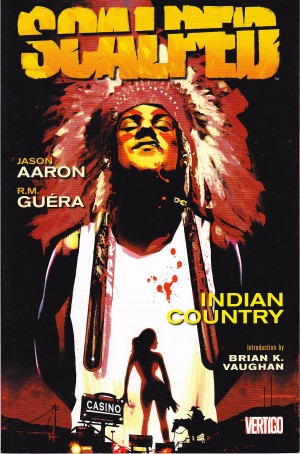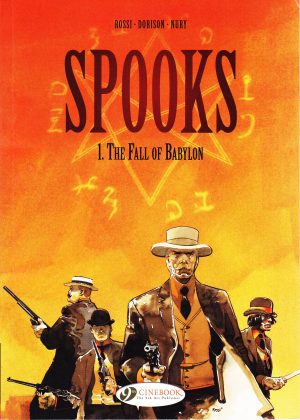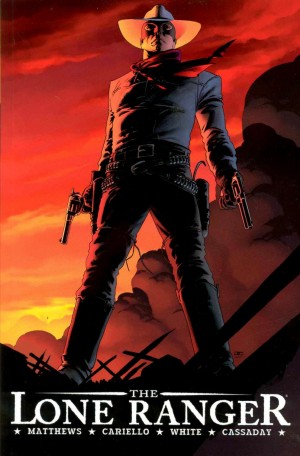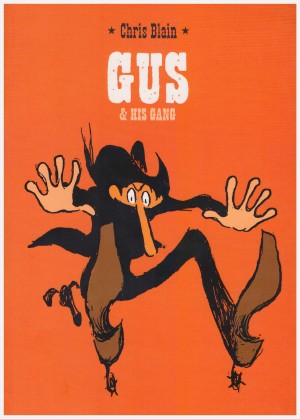Review by Ian Keogh
Black Hearts combines translations of the sixth and seventh Bouncer albums by Alexandro Jodorowsky and François Boucq. The events detailed in The One-Armed Gunslinger drew a neat line under Bouncer’s past, and set him up in the present of the 1870s. Black Hearts is where the series takes a turn into the seriously strange, perverse and hilarious.
There’s always been an eccentricity about Jodorowsky’s cast, but without venturing into spoiler territory it can be revealed that the thug with seven children and an axe embedded in his head, neatly known as Axe-Head, isn’t the strangest character here. Part of the reason such an obvious grotesque slips so neatly into Bouncer’s world is Boucq’s ability to convince utterly with his depiction of the ensemble followed. It’s possible to buy into everyone here from the prim school teacher to the tragic Native American Toro Negro. Boucq’s scenery is equally memorable, and equally eccentric. Central to the story are events hatched at a magnificent mansion built in a cave, yet the matter of fact way Boucq incorporates this into his illustrations presents it as nothing out of the ordinary, just another facet of Bouncer’s world.
If our one armed gunslinger thought his life would become any easier now owning the Inferno saloon and with his heritage revealed, he’s rapidly disabused of that notion when his extended family come calling. Many of Jodorowsky’s other plot elements draw from the culture of Westerns, but are simultaneously very contemporary. Political compromise where money is concerned is a strong motivation, as is the desire to bang square pegs into round holes. Fitting that category are Axe-Head’s near feral children, murderous and only ever controlled by their father. There’s no mitigating social pleading as they go about their business, and more controversially, no avoiding their fate. From the beginning of the series Jodorowsky has emphasised Native American culture, but more unusually also spotlights the lives of the Chinese immigrants to 1870s USA, and the way they’re seen.
This, however, is a humane by-product of subplots among the expected widescreen action, which is delivered in full. Once again, land grabs are an issue, and Bouncer is thrown into the middle of situations endangering his life, ones that nullify his deadshot talents. Toward the end of the book there’s a revelation that changes a lot. Some may see it coming, as it’s straight from pulp fiction, but what’s clever about it is the way it enables some earlier scenes to take on a different light. Go back and take another look.
In France another four albums continue Bouncer’s story, but the creators switched publishers, and surprisingly little work from Glénat’s vast backlist has seen print in English, so don’t hold your breath for a continuation. As an alternative to this book, why not consider the reasonably priced Bouncer hardback collecting his first seven French albums?
